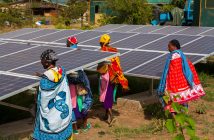- Scientists from Australia’s Griffith University seeking to understand why homeowners choose to install PV have identified 333 predictors.
- Researchers collected data from 173 quantitative and qualitative studies which considered household attitudes, knowledge, tendencies, awareness, willingness and intent to install solar as well as the adoption decision itself.
The studies examined – which concerned households around the world – included predictive and retroactive approaches but did not take into account behavioural changes after solar rooftops were installed.
The Griffith team identified 20 categories and a further 20 sub-categories of rooftop solar predictors which they grouped into individual, social and information groups.
The resulting taxonomy was based on the reasoned-action approach framework – the dominant conceptual theory for predicting, explaining and changing human social behavior.
Identification process
The researchers claimed popular or statistically significant determinants were not necessarily accurate predictors.
The most accurate predictions, the researchers found, were those that provided insight into individual behaviors related to the community where a project would be located; which described characteristics of the geographical location to determine social factors; and which conveyed an understanding of homeowner knowledge about the economic and technical details of PV technology. “Recognition of the materialistic levels of society, general behavioral attributes, affordability and awareness and maturity of the technology can serve as a starting point of the identification process,” the scientists stated.
The adoption of residential battery storage may complicate the picture, the Griffith team said. “It is evident that the coupled SPV-BESS [solar PV-battery energy storage system]financial decision will change significantly from standalone SPV; however, what requires careful consideration is how attitudinal traits will transform,” stated the researchers. “A good example is the change in the level of importance of variables such as ‘energy autonomy’ as a critical driver of intention to adopt SPV-BESS.”
Unknowns
The researchers added, there remain many unknowns about the long-term implications of the widespread adoption of residential storage and said much many depend on whether homeowners perceive solar-plus-storage as an environmental technology or financial investment.
The findings of the research were presented in the paper Predictors, taxonomy of predictors, and correlations of predictors with the decision behaviour of residential solar photovoltaics adoption: A review, published in Renewable and Sustainable Energy Reviews.
Author: Emiliano Bellini
This article was originally published in pv magazine and is republished with permission.











